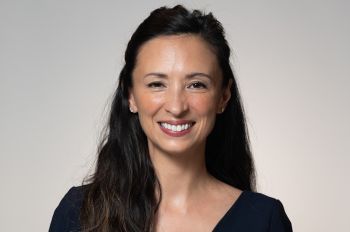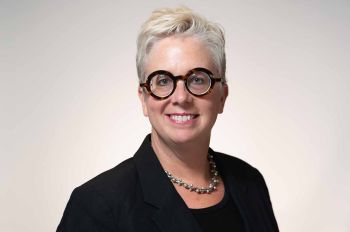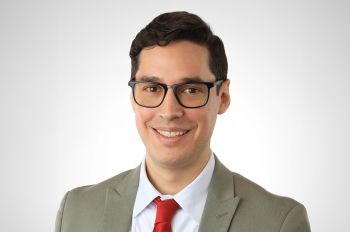Apps for Justice wins Future Ed contest
IIT Chicago-Kent Professor Ronald Staudt leads the winning team
"Apps for Justice: Learning Law by Creating Software," an innovative legal education concept developed by IIT Chicago-Kent Professor Ronald W. Staudt and a team of educators and entrepreneurs, has been honored at the Future Ed: New Business Models for U.S. and Global Legal Education conference held at New York Law School April 15 and 16. The Apps for Justice (or A4J) project proposes new clinical courses in law schools designed to teach students about technology and substantive law by expanding legal education programs in which students create software applications.
The A4J concept was created as part of a year-long "Future Ed" contest co-sponsored by New York Law School and Harvard Law School that sought innovative ideas to expand the scope of legal education, improve quality and reduce costs. Contestants were challenged to develop "operational alternatives to the traditional law school business model and to identify concrete steps for the implementation of new designs." As the contest's top vote-getters, Professor Staudt and his team received $10,520,000 in "fictional funding" for their idea.
"Future Ed hosted an exciting group with great ideas for improving legal education. All of us were vying for simulated 'venture dollars,' so it was very electric," said Professor Staudt. "What a fabulous endorsement of the Apps for Justice idea from these creative educators, deans and lawyers in New York!"
The Apps for Justice concept proposes courses that engage students in creating software applications that can run the gamut from helping practitioners "work smarter" to empowering pro se litigants and others to address their own problems and opportunities. Combined with courses in legal doctrine, ethics, history and theory, Professor Staudt says the program can also help prepare students for the economic and technological realities of practicing law as well as advance access to justice and the rule of law for others.
"Our core idea was to use law school clinics as laboratories to build A2J Author Guided Interviews for low-income people. It's a win-win: students learn new-age core skills, and low-income people get better access to justice. We had great partners, including Marc Lauritsen from Capstone Practice Systems, John Mayer from CALI, Brian Donnelly from Columbia and Larry Farmer from Brigham Young."
Professor Staudt and his partners in the proposal estimate the cost to stimulate many more of these cyber-clinics at $440,000 over two years. This includes one-semester pilot courses taught at five law schools throughout the country. The Future Ed prize was awarded in the form of a non-negotiable check for "fictional funding."
"Now comes the hard work of raising real money to deliver Apps for Justice clinics at law schools other than Chicago-Kent and our few partners in this proposal," said Professor Staudt.
A member of Chicago-Kent's faculty since 1978, Professor Staudt has pioneered the use of technology in legal education. In 1978 he became director of Chicago-Kent's "Law Office of the Future" project, which explored ways that new technologies could benefit the practice of law. In 1983, Professor Staudt founded the law school's Center for Law and Computers to promote the use of computers and other electronic technologies in the teaching, study and practice of law.
He is director of the Center for Access to Justice & Technology (CAJT) -- a law school center using Internet resources to improve access to justice, with special emphasis on building Web tools to support legal services advocates, pro bono volunteers and pro se litigants. The project developed A2J Author® software in partnership with the Center for Computer Assisted Legal Instruction (CALI). The software currently is used in 35 states, the U.S. Virgin Islands, Guam and Canada.
Chicago-Kent College of Law is the law school of Illinois Institute of Technology, a private, Ph.D.-granting institution with programs in engineering, psychology, architecture, business, design and law. The Center for Access to Justice & Technology was established at Chicago-Kent to make justice more accessible to the public by promoting the use of the Internet in the teaching, practice, and public access to the law. The Center conducts research, builds software tools, teaches classes and supports faculty, staff and student projects on access to justice and technology. In 2008, the CAJT received the Louis M. Brown Award for Legal Access from the American Bar Association's Standing Committee on the Delivery of Legal Services.



